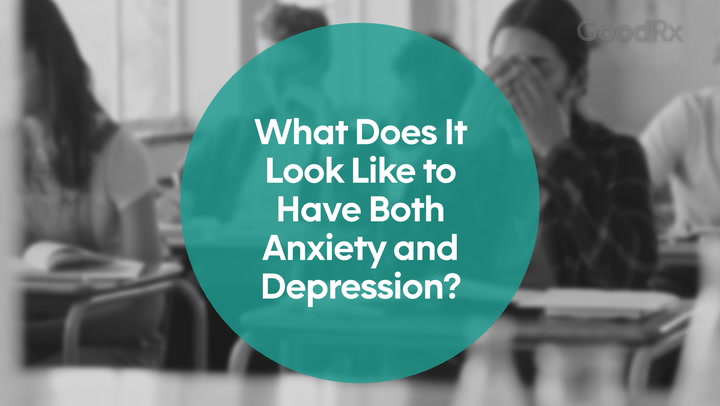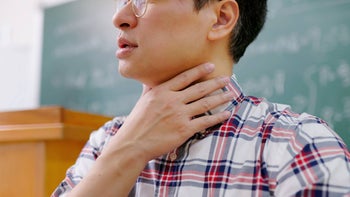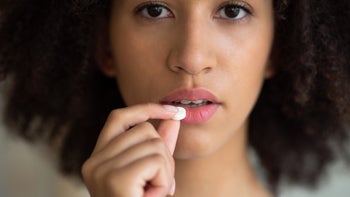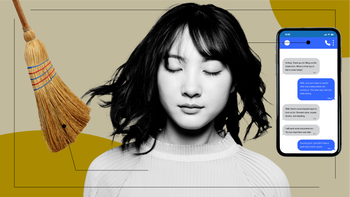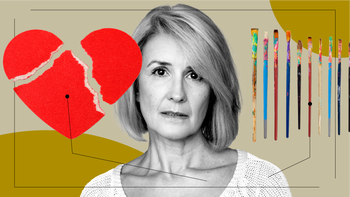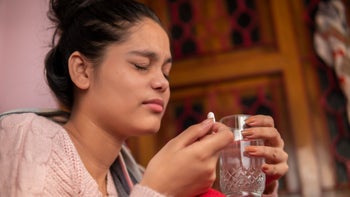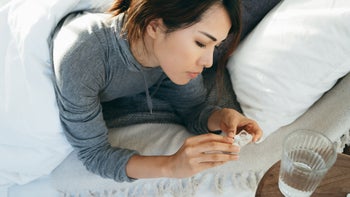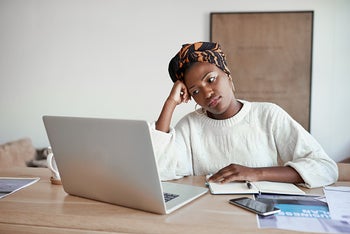
Is There a Cure for Anxiety?
Key takeaways:
Anxiety is a mental health condition that causes ongoing worry that’s hard to control.
Experts don’t know for sure what causes anxiety, but it seems there’s a link to genetics, environment, and life experiences. Some of these things are beyond your control, which means anxiety can’t be cured completely.
Though anxiety doesn’t have a cure, there are many good options for treatment that can get your symptoms under control.
Anxiety is most often treated with medications, therapy, or both. But natural remedies and lifestyle choices can be helpful for some people, too.
Table of contents

Anxiety is not curable, but there are ways to keep it from being a big problem.
Getting the right treatment for anxiety helps you lessen out-of-control worries so that you can get on with life. There are many ways to do this. Scientific studies have helped healthcare providers sort out which ones work best for most people.
Anxiety can’t be cured because a person’s likelihood of having anxiety is part of their genetic makeup. And this is something no treatment can change. That’s why we say that anxiety can’t be completely cured.
Search and compare options
What is anxiety?
Anxiety is fear about what might happen in the future. Everyone is anxious at times, but the medical problem of anxiety happens when worry becomes intense and won’t go away.
Troubles with anxiety often begin in childhood and may continue throughout life. As people grow older, the types of situations that cause anxiety and the types of worries change.
In all cases, normal worrying turns into medical anxiety when it starts getting in the way of life. For example, you may start withdrawing from others or avoiding things that make you anxious.
How to treat anxiety
If you have anxiety, you’re not alone. And because anxiety is so common, there are many strategies and tools to help control your symptoms.
To address anxiety, healthcare providers often start with psychotherapy (or talk therapy) and medication. Therapy works well for some people, while others need medication. And for many, a combination of the two is the right way to go.
Psychotherapy
Therapy with a psychiatrist, psychologist, or counselor is a strong first step in taking charge of your anxiety. These specialists are trained to use a variety of methods to help you be more aware of and better manage your anxiety. This includes one-on-one conversations, assignments, and exercises.
Here are some key takeaways from research on psychotherapy for anxiety:
Cognitive-behavioral therapy (CBT) has been particularly well studied and found to be effective for generalized anxiety disorder.
CBT can also work well for children with anxiety.
Online psychotherapy, including online CBT, is a growing research area that shows promise.
When it comes to managing anxiety, a 2017 review study suggests that any type of professional therapy is better than nothing.
Medications
Sometimes people need medication to control their anxiety. Some types of medications to prevent anxiety are taken daily while others are prescribed to be taken as needed.
Prescription medications for anxiety include:
Selective serotonin reuptake inhibitors (SSRIs): Examples include escitalopram (Lexapro) and paroxetine (Paxil). The off-label medications for anxiety fluoxetine (Prozac) and sertraline (Zoloft) work well too.
Serotonin-norepinephrine reuptake inhibitors (SNRIs): Examples include duloxetine (Cymbalta) and venlafaxine (Effexor).
Tricyclic antidepressants: Examples include doxepin and imipramine (Tofranil).
Atypical antipsychotics: Quetiapine (Seroquel) is one example.
Beta blockers: Propranolol (Inderal) is one example.
Benzodiazepines: Examples include alprazolam (Xanax), lorazepam (Ativan), and clonazepam (Klonopin).
Others: Buspirone, hydroxyzine, and pregabalin (Lyrica) can also help treat anxiety.
Natural remedies for anxiety
In addition to therapy and medication, there are other things you can do to help manage your anxiety. Here are some of the tools that have the most scientific evidence to back them up.
Get enough sleep
Anxiety and sleep have a complex relationship. On one hand, a lack of sleep can worsen anxiety the next day. On the other hand, it’s difficult to fall asleep when you’re constantly worrying. If you experience anxiety, the advice to “get more sleep” may give you one more thing to worry about in the middle of the night.
But it can help to take a step back and look at your sleep habits. Are you doing everything you can to get a good night’s sleep? Here are some concrete steps everyone can take to improve their sleep:
Keep your bedtime and wake-up time the same every day — even on weekends.
Make sure your bedroom is dark and quiet, and try to keep a comfortable temperature.
Don’t watch TV or use electronics right before bed.
Lower how much caffeine and caffeine-containing medications you use during the day and especially in the afternoons.
Avoid alcohol, and don’t eat a large meal right before bed.
To slow your brain down before bed, find a relaxing activity, like reading, coloring, meditating, praying, journaling, or listening to quiet music.
Get some exercise during the day so your body is tired and ready for sleep in the evening.
Exercise
Getting some exercise not only helps you sleep, it also has a powerful effect on anxiety. Research shows that even a small amount of exercise — like going for a walk — releases chemicals in the brain that can improve mood. And exercise is great for mental and physical health in many other ways, too.
Reconnect with yourself and your environment
At its heart, anxiety becomes a problem when it outgrows actual dangers in your life. You can’t expect to “think your way out” of an anxiety disorder. But paying attention to your own mind and body can also help your symptoms get better.
Here are some ways to reconnect with yourself and your environment:
Mindfulness is a set of techniques that force you to slow down and pay attention to details about yourself and your environment.
Meditation, visualization, and breathing exercises also refocus attention to the present and away from fearful thoughts about the future.
Biofeedback takes mindfulness one step further by teaching you to control your heart rate and blood pressure through relaxation and breathing.
Yoga offers a double benefit because it includes parts of both mindfulness and physical exercise.
Reconnect with others
Connecting with other people helps to manage anxiety. This is what support groups are for, but you don’t need a special group to feel connected. Find a hobby, exercise group, religious organization, discussion club, or volunteer activity that interests you and helps you reach out to others. Social support, such as group therapy, can also be a great treatment for anxiety.
Consider herbal medications and supplements
There are dozens of over-the-counter supplements that are marketed for anxiety. This includes herbs, vitamins, minerals, and more. Here’s some of what research shows about how well they work:
Cannabis: Cannabidiol (CBD), hemp, and cannabis are getting lots of attention as treatments for anxiety. Some scientific evidence suggests they may work, but there’s still plenty to learn about their safety and how to best use them.
Chamomile: People around the world use chamomile to promote calmness. It seems to work for short periods, but so far scientists haven’t been able to show that it has a long-term effect.
Ginkgo biloba: Ginkgo biloba is a common supplement. People take it for many reasons, including different mental health problems. It might have a small effect against anxiety.
Kava: Usually taken as a drink, kava is believed to calm anxiety without making you sleepy. Scientific studies of kava have shown mixed results. But some countries have banned it for causing liver damage.
Lysine: Research is slim, but there seems to be some scientific support for lysine as a supplement to lessen anxiety. So far researchers have only studied it along with other things.
Magnesium: Magnesium is a supplement that is used to prevent migraines, among other things. As a treatment for anxiety, researchers have only tested it along with other supplements. So it’s not clear how useful it is alone.
Passionflower: Passionflower is an old treatment for anxiety and nervousness, and there is some science to back it up. But keep in mind that passionflower can cause dizziness, drowsiness, and confusion.
Probiotics: Studies have shown that probiotics can be helpful in a long list of conditions, including anxiety. While the versions available in pharmacies are safe, so far science can’t give much advice on what kind(s) work best for anxiety.
St. John’s wort: St. John’s wort has mainly been studied for use against depression. St. John’s wort may be helpful for people who have both depression and anxiety. But be aware that it can interfere with many common medications.
Keep in mind that herbal medications and supplements have broad, complex effects on the brain and body that researchers don’t completely understand. Often these effects are mild, but sometimes they are powerful. And they may come with strong side effects. Do not start a natural remedy until you have talked to your healthcare provider, especially if you’re taking other medications.
Additional treatment options
Here are some of the less-well-known approaches to treating anxiety. These don’t have as much evidence to support them. But they still may be helpful for some people — especially in combination with more established treatments. These approaches include:
Acupuncture and acupressure: In acupuncture treatment, fine needles are placed at predetermined points on the body to adjust the flow of energy, or chi. In acupressure, a therapist presses or taps on the body in a similar pattern. The idea of chi doesn’t fit with a Western understanding of how the body works. But scientists are beginning to agree that this form of traditional Chinese medicine can be useful as a treatment for anxiety.
Altruism: This is the act of helping people in need. Helping others triggers feelings of connectedness, compassion, gratitude, and forgiveness. This builds happiness through self-actualization and a sense of purpose. Thinking about the needs of others expands perspective and redirects focus away from the self. Taken together, this may be a helpful approach for some people with anxiety.
Animal-assisted therapy: Building a sense of compassion and connectedness doesn’t apply only to humans. Bonding with and taking care of animals can boost mental health, too. Don’t have a pet? Spend time with a therapy animal or observe animals in nature.
Aromatherapy: Scientific research has found that lavender, bergamot, and bitter orange are among the essential oils that lower anxiety. Scientists are just beginning to study why these chemicals seem to help calm nerves.
Art therapy: Working on a guided visual-art project may help lower anxiety in certain situations, such as for college students getting ready to take a big exam. Professional art therapists also use this method to help people examine uncomfortable memories that could be contributing to anxiety.
Dietary changes: There are many reasons to eat a healthy diet. But not much research shows a strong connection between food and anxiety. This may be because diets are complex, and researchers are still sorting out the links. But research does show that diet can be tied to depression, and anxiety and depression often occur together.
Eco-therapy: There has not been much research to support eco-therapy as a formal anti-anxiety technique. But it makes sense that spending time in nature can bring peace and broaden perspective. Proponents say that contemplating the world beyond everyday life can help break a cycle of negative thoughts.
Horticultural therapy: This takes advantage of the mental health benefits people get when they nurture growing plants or work in a garden. It has mainly been studied in older adults and school children, and it seems to have a positive effect.
Light therapy: This uses different types of artificial light on the skin and face. Light therapy is mostly used for seasonal depression, but some people have found it useful for anxiety as well.
Massage: This is a popular way to treat anxiety, and research does seem to show that massage helps with stress in the short term. Science has yet to study how well it works over time.
Music therapy: Listening to music has a powerful effect on mood, and music therapy takes advantage of this connection. Music therapy is most often used along with other types of therapy for stronger effects.
Reiki: This Japanese technique, sometimes referred to as “laying on of hands,” uses very light touch or vibrational energy to influence mood and promote relaxation and healing. Like acupuncture, it’s not clear how the energy flow used in Reiki fits into knowledge about how the body works. Reiki is popular for relaxation and stress management, but there’s little scientific support.
Reminiscence therapy: Adults are prompted to recall old memories, sometimes using objects, smells, or textures as cues. This type of therapy is popular for older adults, but how well it helps with anxiety is still up for debate.
Smartphone apps: Apps that help people calm anxious thoughts are becoming popular. And research shows that this approach can have lasting benefits. Some psychologists are taking it a step further by adding a personal counselor on the other end of the connection. So far, this technique seems to be best for reaching people who are reluctant to talk to a therapist in person.
Spiritual counseling: Counseling by a religious leader shows some scientific support as a therapy for anxiety. Private spiritual meditation and prayer can also be helpful in combating anxiety.
The bottom line
Dealing with anxiety can be difficult. But even though there’s no cure, there are many good treatments that can help you feel better. If you have anxiety, talk with your healthcare provider. They can help you find anxiety treatments that work well for you, your lifestyle, and your unique symptoms. These treatments range from tried-and-true approaches like medication and therapy to more alternative and natural remedies like acupuncture and yoga.
Why trust our experts?


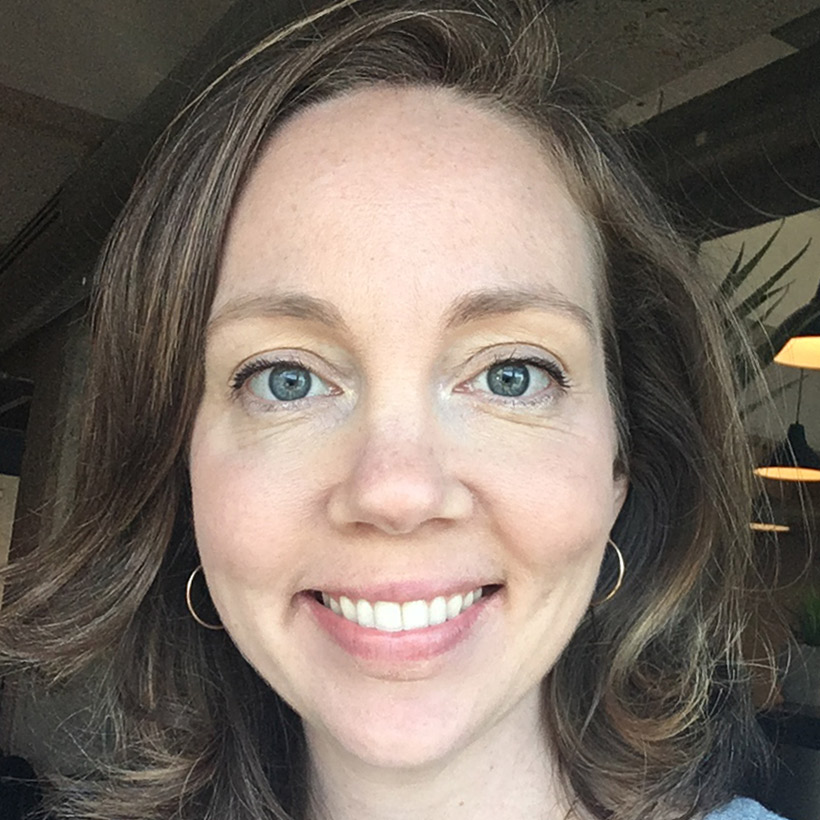
More information and resources
References
Abbing, A., et al. (2018). The effectiveness of art therapy for anxiety in adults: A systematic review of randomised and non-randomised controlled trials. PLoS One.
Akhondzadeh, S., et al. (2001). Passionflower in the treatment of generalized anxiety: A pilot double-blind randomized controlled trial with oxazepam. Journal of Clinical Pharmacy and Therapeutics.
Andrews, G., et al. (2018). Computer therapy for the anxiety and depression disorders is effective, acceptable and practical health care: An updated meta-analysis. Journal of Anxiety Disorders.
Banneyer, K. N., et al (2018). Cognitive behavioral therapy for childhood anxiety disorders: A review of recent advances. Current Psychiatry Reports.
Barrett, P. M. (1998). Evaluation of cognitive-behavioral group treatments for childhood anxiety disorders. Journal of Clinical Child Psychology.
Blanck, P., et al. (2018). Effects of mindfulness exercises as stand-alone intervention on symptoms of anxiety and depression: Systematic review and meta-analysis. Behaviour Research and Therapy.
Blessing, E. M., et al. (2015). Cannabidiol as a potential treatment for anxiety disorders. Neurotherapeutics: The Journal of the American Society for Experimental NeuroTherapeutics.
Bradt, J., et al. (2013). Music interventions for preoperative anxiety. The Cochrane Database of Systematic Reviews.
Capaldi, C. A., et al. (2014). The relationship between nature connectedness and happiness: A meta-analysis. Frontiers in Psychology.
Carpenter, J. K., et al. (2018). Cognitive behavioral therapy for anxiety and related disorders: A meta-analysis of randomized placebo-controlled trials. Depression and Anxiety.
Cramer, H., et al. (2018). Yoga for anxiety: A systematic review and meta-analysis of randomized controlled trials. Depression and Anxiety.
De Sousa, D. P., et al. (2015). A systematic review of the anxiolytic-like effects of essential oils in animal models. Molecules: A Journal of Synthetic Chemistry and National Product Chemistry.
Elias, S. M. S., et al. (2015). The effectiveness of group reminiscence therapy for loneliness, anxiety and depression in older adults in long-term care: A systematic review. Geriatric Nursing.
Firth, J., et al. (2017). Can smartphone mental health interventions reduce symptoms of anxiety? A meta-analysis of randomized controlled trials. Journal of Affective Disorders.
Firth, J., et al. (2019). The effects of dietary improvement on symptoms of depression and anxiety: A meta-analysis of randomized controlled trials. Psychosomatic Medicine.
Gelfuso, E. A., et al. (2014). Anxiety: A systematic review of neurobiology, traditional pharmaceuticals and novel alternatives from medicinal plants. CNS & Neurological Disorders - Drug Targets.
Goessl, V. C., et al. (2017). The effect of heart rate variability biofeedback training on stress and anxiety: A meta-analysis. Psychological Medicine.
Gonçalves, J. P. B., et al. (2015). Religious and spiritual interventions in mental health care: A systematic review and meta-analysis of randomized controlled clinical trials. Psychological Medicine.
Goyatá, S. L. T., et al. (2016). Effects from acupuncture in treating anxiety: Integrative review. Revista Brasileira de Enfermagem.
Health Quality Ontario. (2017). Psychotherapy for major depressive disorder and generalized anxiety disorder: A health technology assessment. Ontario Health Technology Assessment Series.
Ho, C., et al. (2018). Counselling provided by a person with religious affiliation for mental health disorders: A review of clinical effectiveness and guidelines. Canadian Agency for Drugs and Technologies in Health.
Joyce, J., et al. (2015). Reiki for depression and anxiety. The Cochrane Database of Systematic Reviews.
Kawachi, I., et al. (2001). Social ties and mental health. Journal of Urban Health: Bulletin of the New York Academy of Medicine.
Kim, K., et al. (2018). Horticultural therapy program for middle-aged women's depression, anxiety, and self-identify. Complementary Therapies in Medicine.
Kim, Y., et al. (2017). The association between service members' participation in humanitarian aid and disaster relief and mental health symptoms and treatments. Military Medicine.
Krisanaprakornkit, T., et al. (2006). Meditation therapy for anxiety disorders. The Cochrane Database of Systematic Reviews.
Lakhan, S. E., et al. (2010). Nutritional and herbal supplements for anxiety and anxiety-related disorders: Systematic review. Nutrition Journal.
Lakhan, S. E., et al. (2010). Nutritional and herbal supplements for anxiety and anxiety-related disorders: Systematic review. Nutrition Journal.
Liu, S., et al. (2015). Recent advances in massage therapy--a review. European Review for Medical and Pharmacological Sciences.
Lundqvist, M., et al. (2017). Patient benefit of dog-assisted interventions in health care: A systematic review. BMC Complementary and Alternative Medicine.
Mao, J. J., et al. (2016). Long-term chamomile (Matricaria chamomilla L.) treatment for generalized anxiety disorder: A randomized clinical trial. Phytomedicine: International Journal of Phytotherapy and Phytopharmacology.
Ooi, S. L., et al. (2018). Kava for generalized anxiety disorder: A review of current evidence. The Journal of Alternative and Complementary Medicine: Research on Paradigm, Practice, and Policy.
Richards, A., et al. (2020). Sleep disturbance in PTSD and other anxiety-related disorders: An updated review of clinical features, physiological characteristics, and psychological and neurobiological mechanisms. Neuropsychopharmacology: Official Publication of the American College of Neuropsychopharmacology.
Stonerock, G. L., et al. (2015). Exercise as treatment for anxiety: Systematic review and analysis. Annals of Behavioral Medicine: A Publication of the Society of Behavioral Medicine.
Tran, N., et al. (2019). The gut-brain relationship: Investigating the effect of multispecies probiotics on anxiety in a randomized placebo-controlled trial of healthy young adults. Journal of Affective Disorders.
Turna, J., et al. (2017). Is cannabis treatment for anxiety, mood, and related disorders ready for prime time? Depression and Anxiety.
Verghese, A. (2008). Spirituality and mental health. Indian Journal of Psychiatry.
Youngstedt, S. D., et al. (2007). Does bright light have an anxiolytic effect? - an open trial. BMC Psychiatry.
For additional resources or to connect with mental health services in your area, call SAMHSA’s National Helpline at 1-800-662-4357. For immediate assistance, call the National Suicide Prevention Lifeline at 988, or text HOME to 741-741 to reach the Crisis Text Line.


